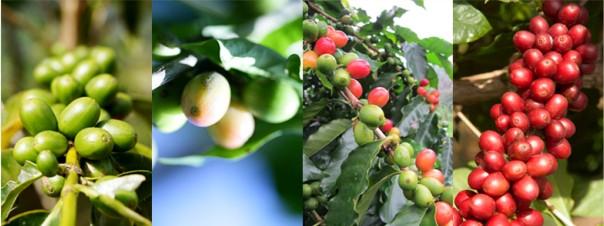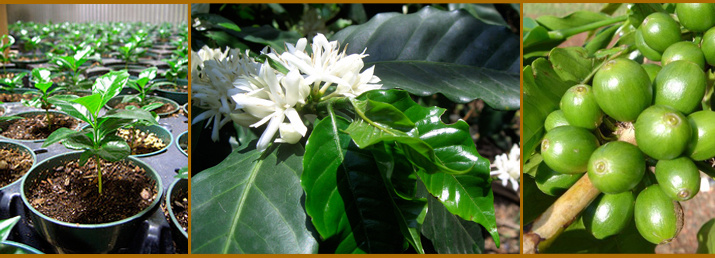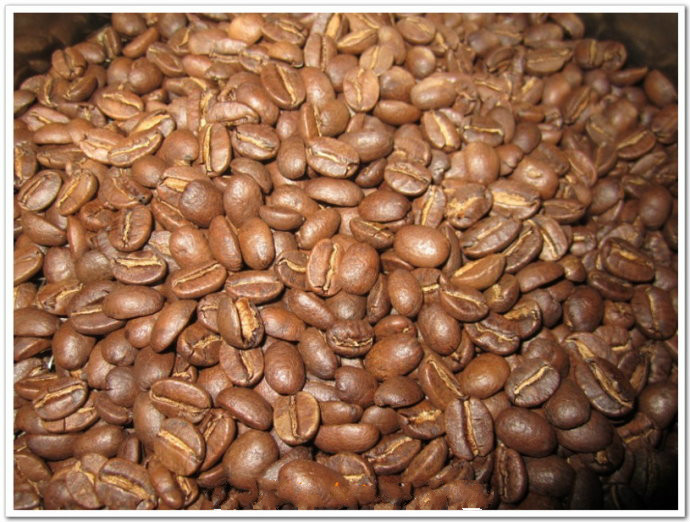African Tanzania coffee cooked beans Kilimanjaro pearl round beans PB Gilimaza water wash bourbon
Tanzania
Gourmet coffee has soft acidity and attractive aroma, which is absolutely worth enjoying.
Coffee exports from Tanzania (Tanzania) play an important role in the whole national economy. Bean-shaped berry coffee is very productive and is said to be more fragrant than ordinary coffee. Generally speaking, the coffee beans in Tanzania have an extraordinary quality. For example, the fine Tanzanian AA coffee (Chagga AA), produced in the Moshi district near Mount Kilimanjaro, is famous for its full-grained and fragrant quality.
Due to political instability and rampant diseases and insect pests, the coffee industry in Tanzania has been damaged, resulting in a decline in the overall level of coffee and instability in quality, which in turn lead to lower prices, which is usually the result of a further decline in the coffee industry. What's more, it is estimated that more than 12% of the Arabica coffee grown in northern Tanzania from 1969 to 1985 was smuggled into Kenya. Recently, however, the country's coffee industry has shown signs of improving. Although the process of improvement is slow, it is still encouraging because, after all, the quality of coffee in Tanzania is excellent.
In the past, the coffee industry in Tanzania has been dominated by manor cultivation, but now more than 85% are grown by small farmers. Many small farmers are combined into cooperative organizations, the most important of which is the Kilimanjaro Cooperative Alliance (Kilimanjaro Cooperative Union, referred to as KNCU). Tanzanian coffee is sold by the Tanzanian Coffee Management Council (Tanzanian Coffee Marketing Board, TCMB) to private exporters by auction. In the 1980s, most coffee sales in Tanzania changed from auctions to being sold directly to the Coffee Management Committee of Tanzania, and the coffee industry is being reformed to allow individuals or groups to buy coffee in the future. at that time, coffee will have to be graded in different ways in order to attract buyers from Germany, Finland, Belgium and Japan.
Mount Mt Kilimanjaro, the highest peak in Africa, stands in the northeast of Tanzania, known as Trusteeship after World War I. it was once under British colonial rule and became independent in 1964. Bourbon strain coffee was first introduced and planted in 1893, raw beans were mainly treated with water washing, and high-quality high-altitude Tanzanian coffee was of good quality, just like Kenya has active and bright acid performance.
The coffee producing areas of Tanzania are Moshi, Mbeya and other producing areas around the foothills of Kilimanjaro in the north, and the Songea-Ruvuma area where the Ruvuma river flows to the south. The style is slightly different due to the different growth topography. The coffee produced in the Ruvuma region of southwestern Tanzania has wine and fruit aromas, which is different from that in the north near Mount Mt Kilimanjaro.
Mount Kilimanjaro is in the northeast of Tanzania, the largest coffee producing area in Tanzania, which accounts for 75%. In general, coffee beans in Tanzania have extraordinary quality. The important producing areas are in the mountains near Kenya in the north. Coffee farmers grow coffee 85% of the total, while local coffee farmers grow coffee at an altitude of 1300-2000m. Its coffee flavor is different from that of neighboring Ethiopia and Kenya. It has two national characteristics, thick body, good fruit and flower aroma, so it is worth a try. Coffee belongs to dicotyledonous plants. Generally speaking, there are two pairs of coffee seeds in a coffee cherry fruit, which is what we call coffee beans. Compared with pair of flat-sided beans, also known as caracol or caracolillo, it means little snail in Spanish. The production of round beans, botanically, is said to be due to uneven pollination (Arabica coffee is a self-pollinating plant, and if a coffee flower has only one ovary or only one ovary has successfully pollinated, it can only produce one seed). Or uneven nutrition during growth (usually more likely to occur in the coffee fruit growing at the end of the coffee tree), the nutrients are absorbed by only one of the cotyledons Only the cotyledons that get the nutrients and continue to grow grow into a single oval, oval-shaped coffee seed, hence the name of the round bean. Normally, the proportion of round beans produced by coffee plants is about 3 to 5%, which is relatively rare, and because the shape and size of coffee beans are different from those of normal coffee (flat) beans, round beans are often singled out and sold independently.
This batch of Kilimanjaro pearl beans are washed with water, with a soft acidity like Kenyan coffee, a pleasingly low acidity, a round taste and a medium consistency. Although the texture of high-quality Tanzanian beans is similar to that of Kenyan coffee, the overall quality is similar to that of Kenyan coffee. In addition to the lingering finish, it also has both fruity and acidity, which is weaker than Kenya coffee and is a mild coffee.
Country: Tanzania
Grade: PB
Producing area: Kilimanjaro volcanic area in the northern highland
Altitude: 1300-2000m
Treatment: washing
Variety: bourbon
Producer: collection of local small farmers
Flavor: apricot fruit, jujube, spices, malt chocolate

Important Notice :
前街咖啡 FrontStreet Coffee has moved to new addredd:
FrontStreet Coffee Address: 315,Donghua East Road,GuangZhou
Tel:020 38364473
- Prev

African coffee boutique manor South Africa's coffee trees are derived from Kenyan fruits like coffee from Central America.
South Africa is fragrant with less acidity, reminiscent of Central American coffee beans. Coffee production in South Africa (South Africa) is mainly in the northeast of the country, from Natal between Transvaal and Mozambique, extending northward to Transvaal, with a southernmost limit of latitude 30 south. Further south, it cannot be caused by early frost.
- Next

USAID will join Nespresso's lineup to assist coffee farmers in South Sudan
The Republic of Sudan is a country located in northeast Africa and on the west coast of the Red Sea. It is bordered by Egypt to the north, Libya, Chad and the Central African Republic to the west, South Sudan to the south and Ethiopia and Eritrea to the east. The northeast is bordered by the Red Sea, with a coastline of about 720 kilometers, making it the third largest country in Africa and the 16th largest country in the world. Sudan has been ranked as the worst in the world by the list of failed states.
Related
- Does Rose Summer choose Blue, Green or Red? Detailed explanation of Rose Summer Coffee plots and Classification in Panamanian Jade Manor
- What is the difference between the origin, producing area, processing plant, cooperative and manor of coffee beans?
- How fine does the espresso powder fit? how to grind the espresso?
- Sca coffee roasting degree color card coffee roasting degree 8 roasting color values what do you mean?
- The practice of lattes: how to make lattes at home
- Introduction to Indonesian Fine Coffee beans-- Java Coffee producing area of Indonesian Arabica Coffee
- How much will the flavor of light and medium roasted rose summer be expressed? What baking level is rose summer suitable for?
- Introduction to the characteristics of washing, sun-drying or wet-planing coffee commonly used in Mantenin, Indonesia
- Price characteristics of Arabica Coffee Bean Starbucks introduction to Manning Coffee Bean Taste producing area Variety Manor
- What is the authentic Yega flavor? What are the flavor characteristics of the really excellent Yejasuffi coffee beans?

